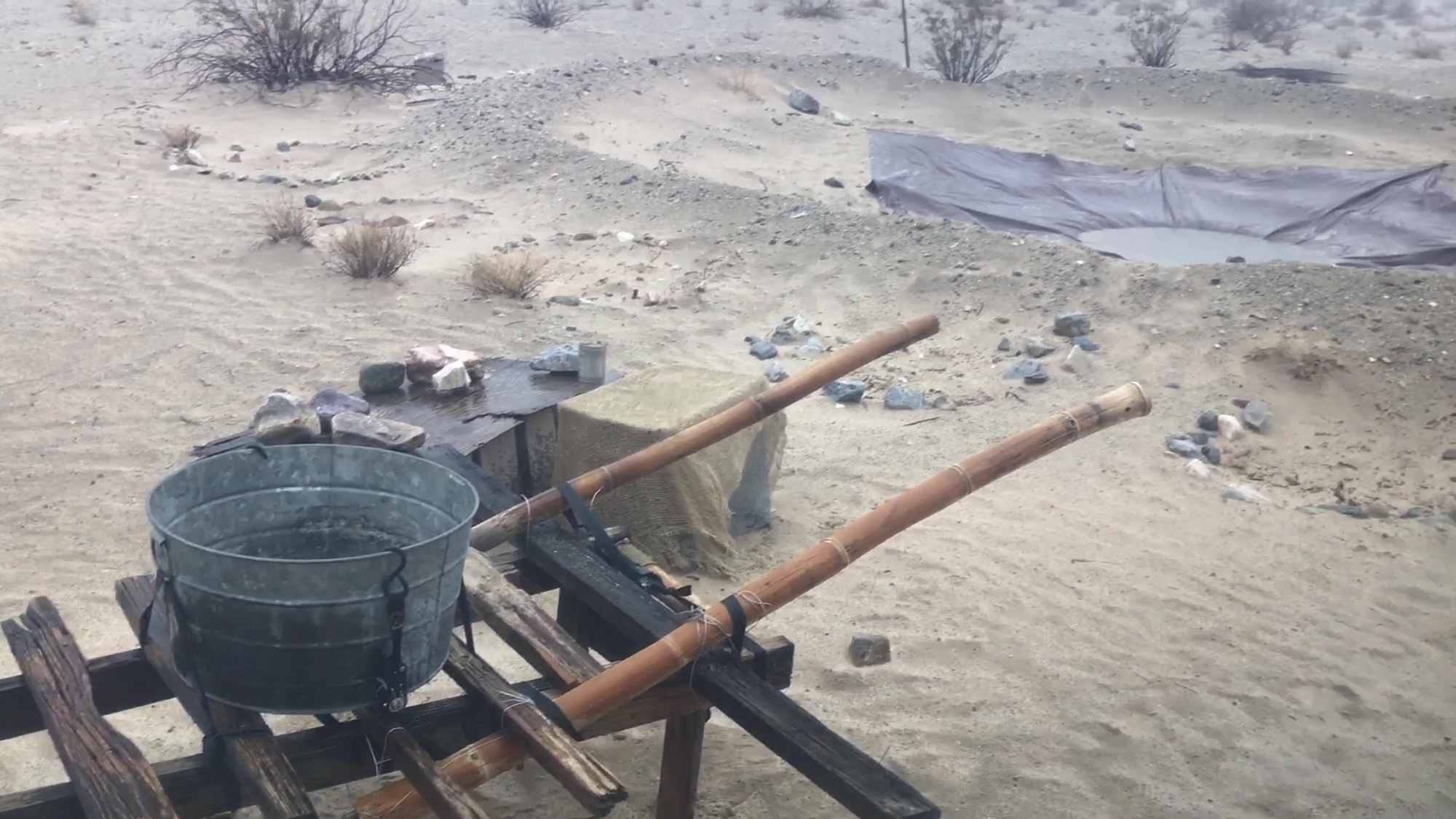
01 Rain Water Catchment Tarp Filling During Rain Storm 01
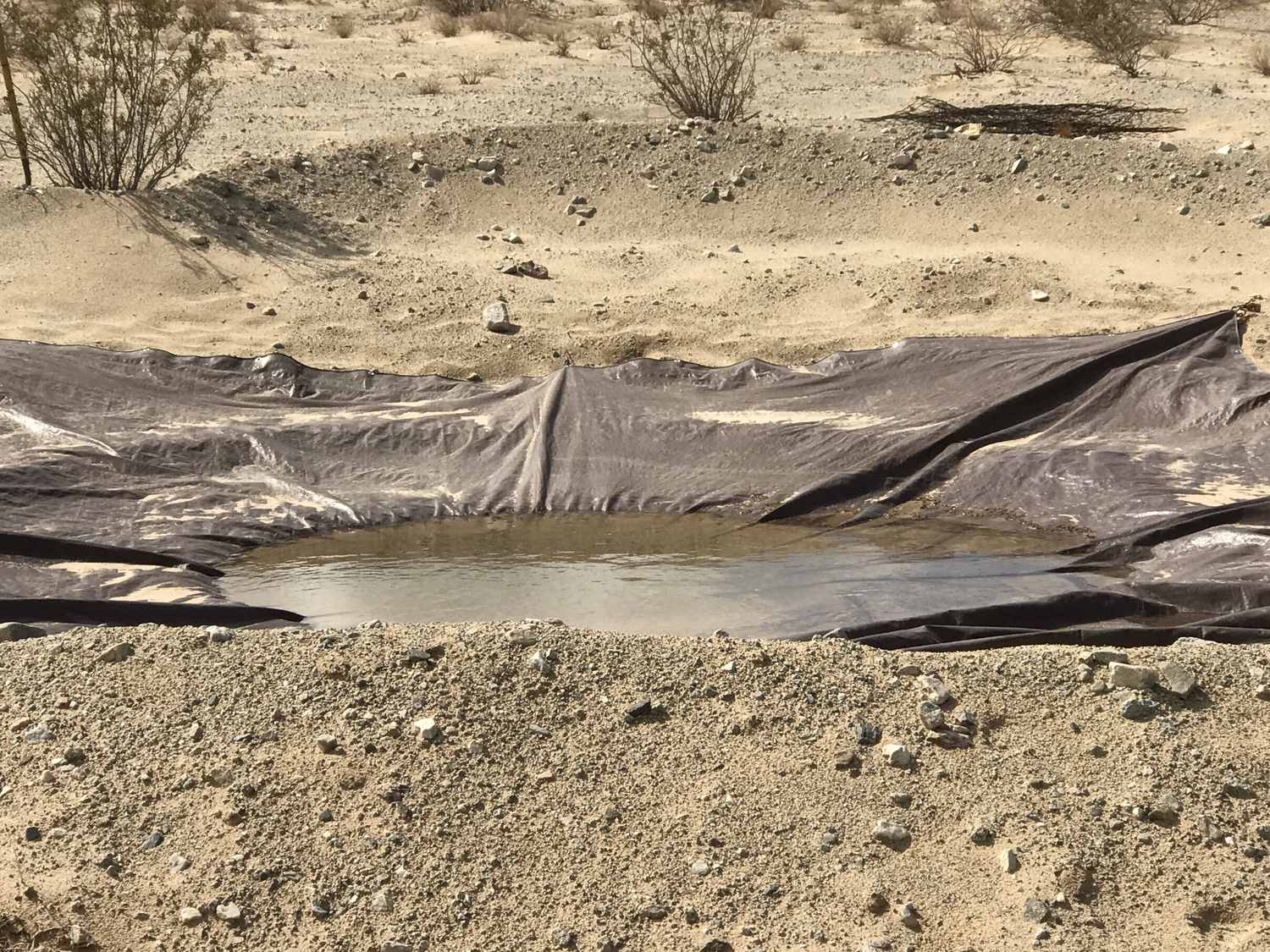
02 Rain Water Catchment Tarp Yield The Day After The Storm 01
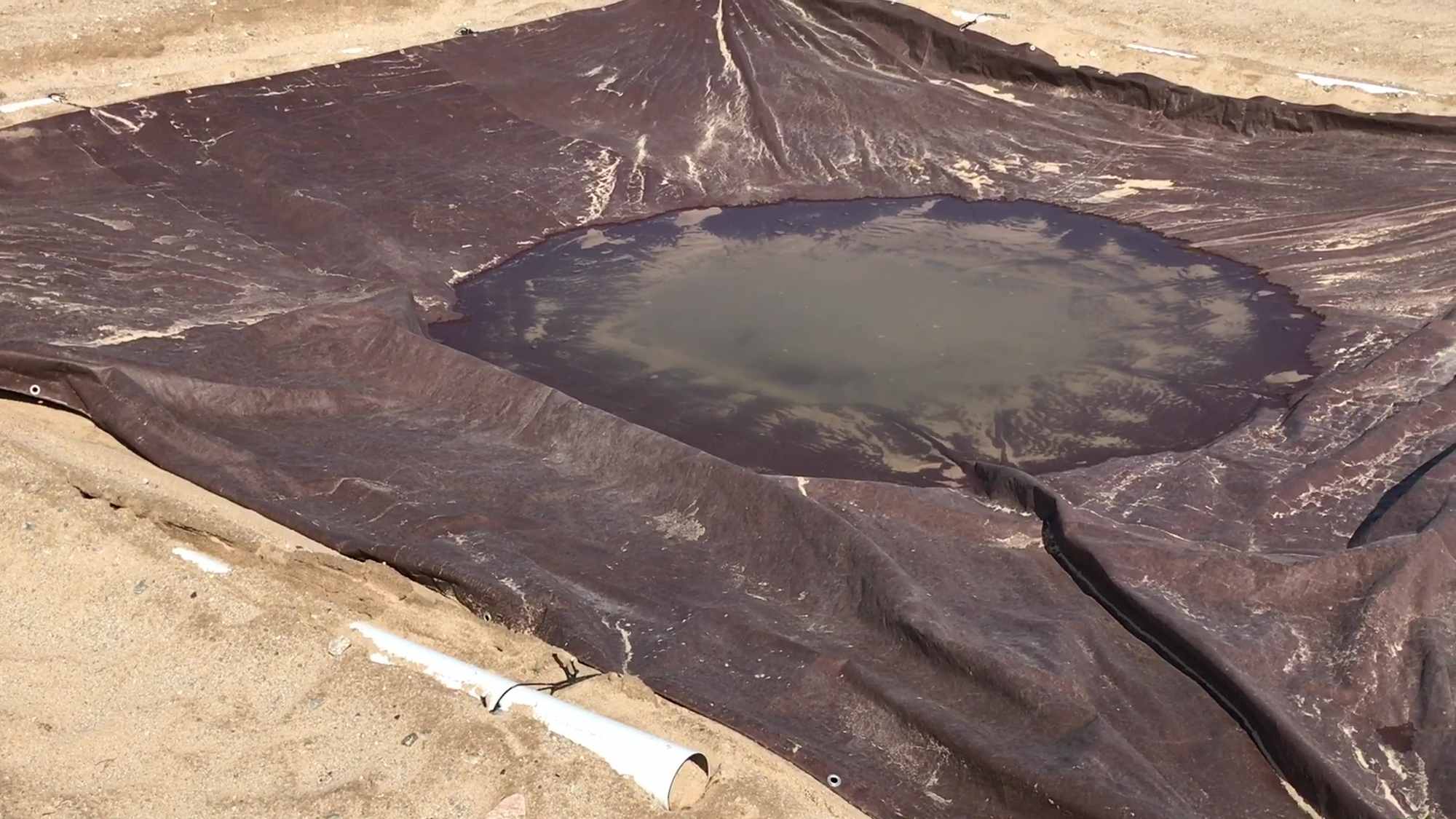
03 Rain Water Catchment Tarp Yield The Day After The Storm 03
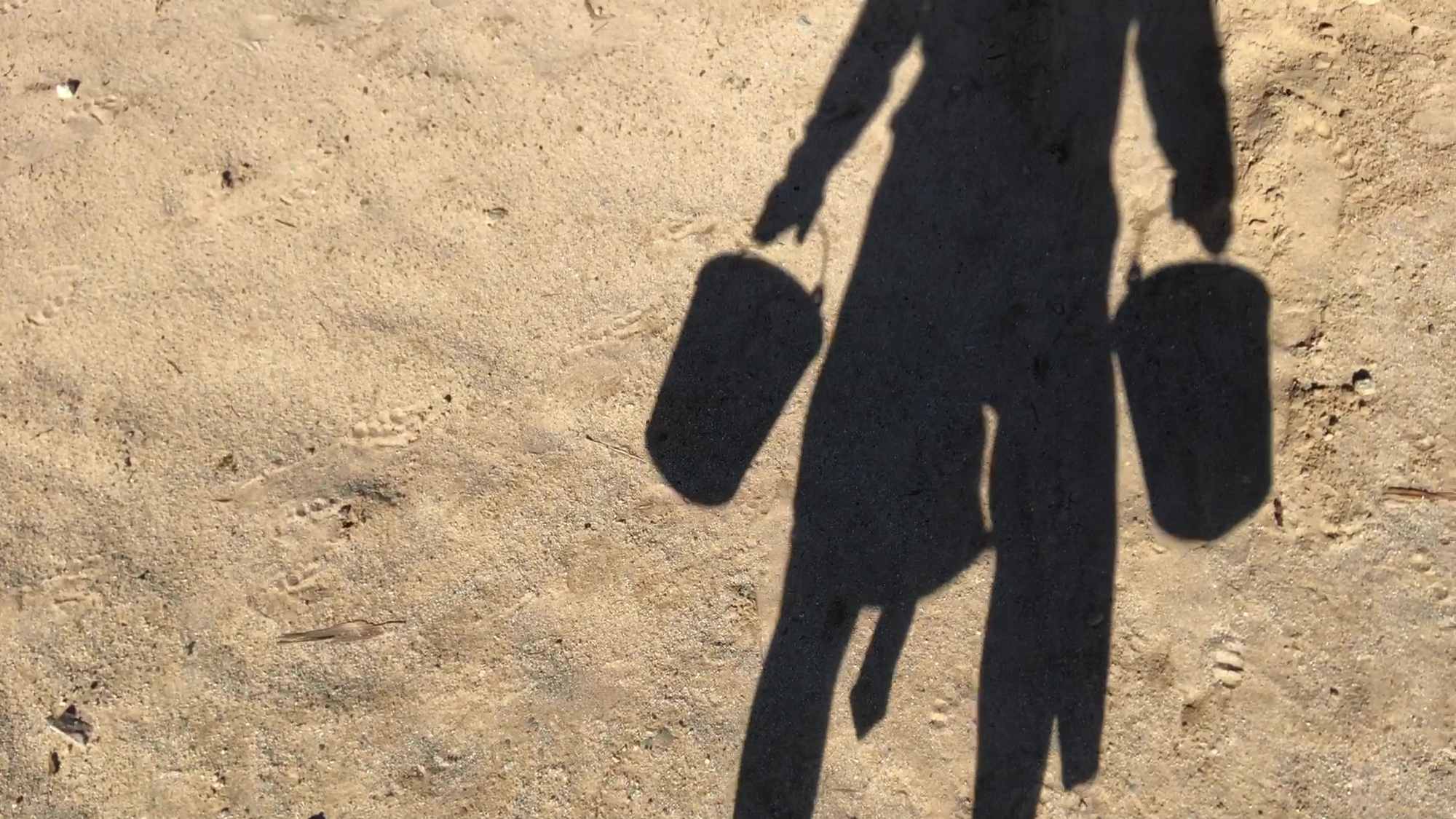
04 Approaching Rain Water Catchment Pond With Two Pails 01
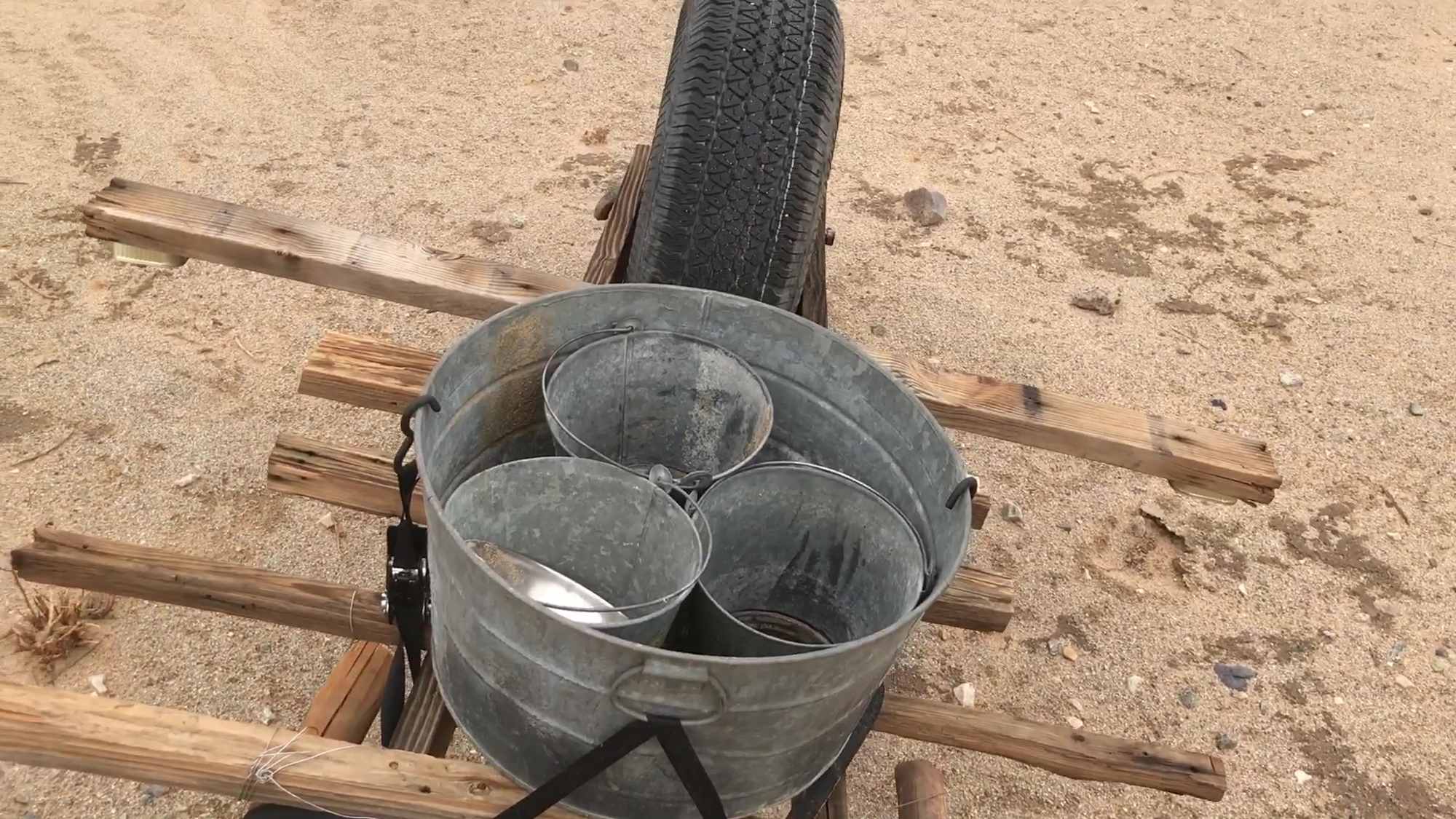
05 Rolling Cart With Pails To Rain Water Catchment Ponds
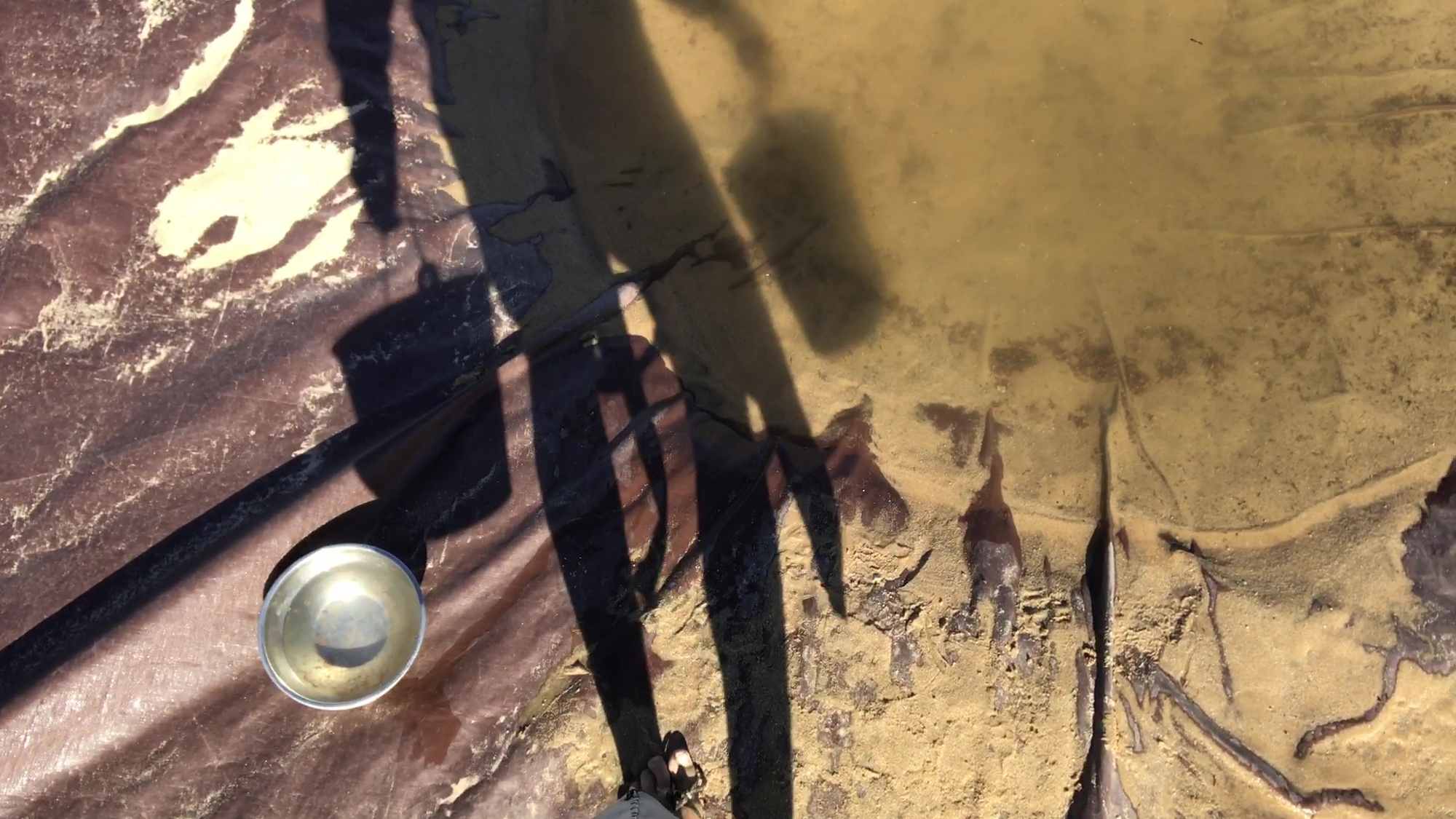
06 Approaching Rain Water Catchment Pond With Two Pails 02
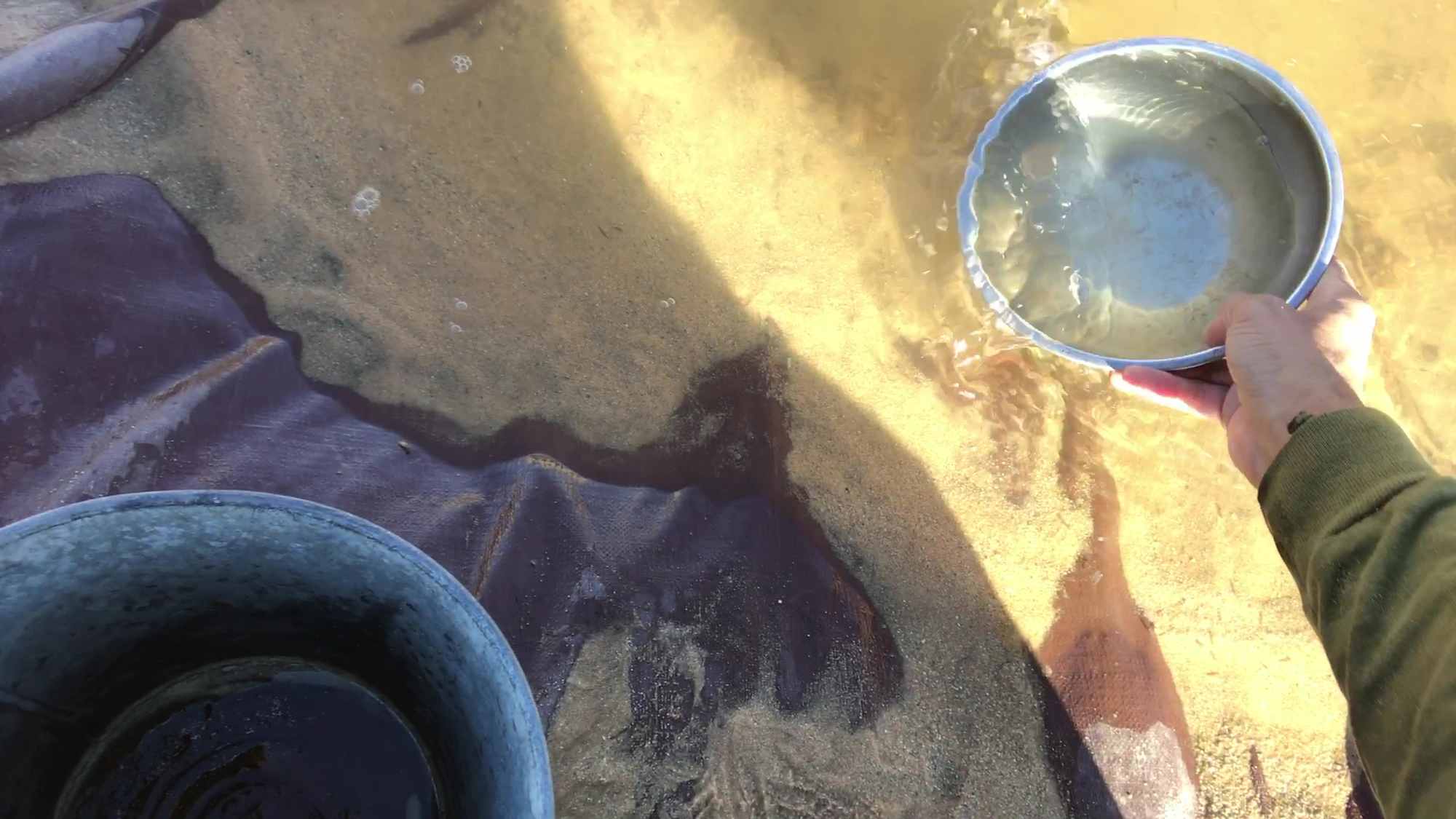
07 Filling Metal Bowl With Rain Water
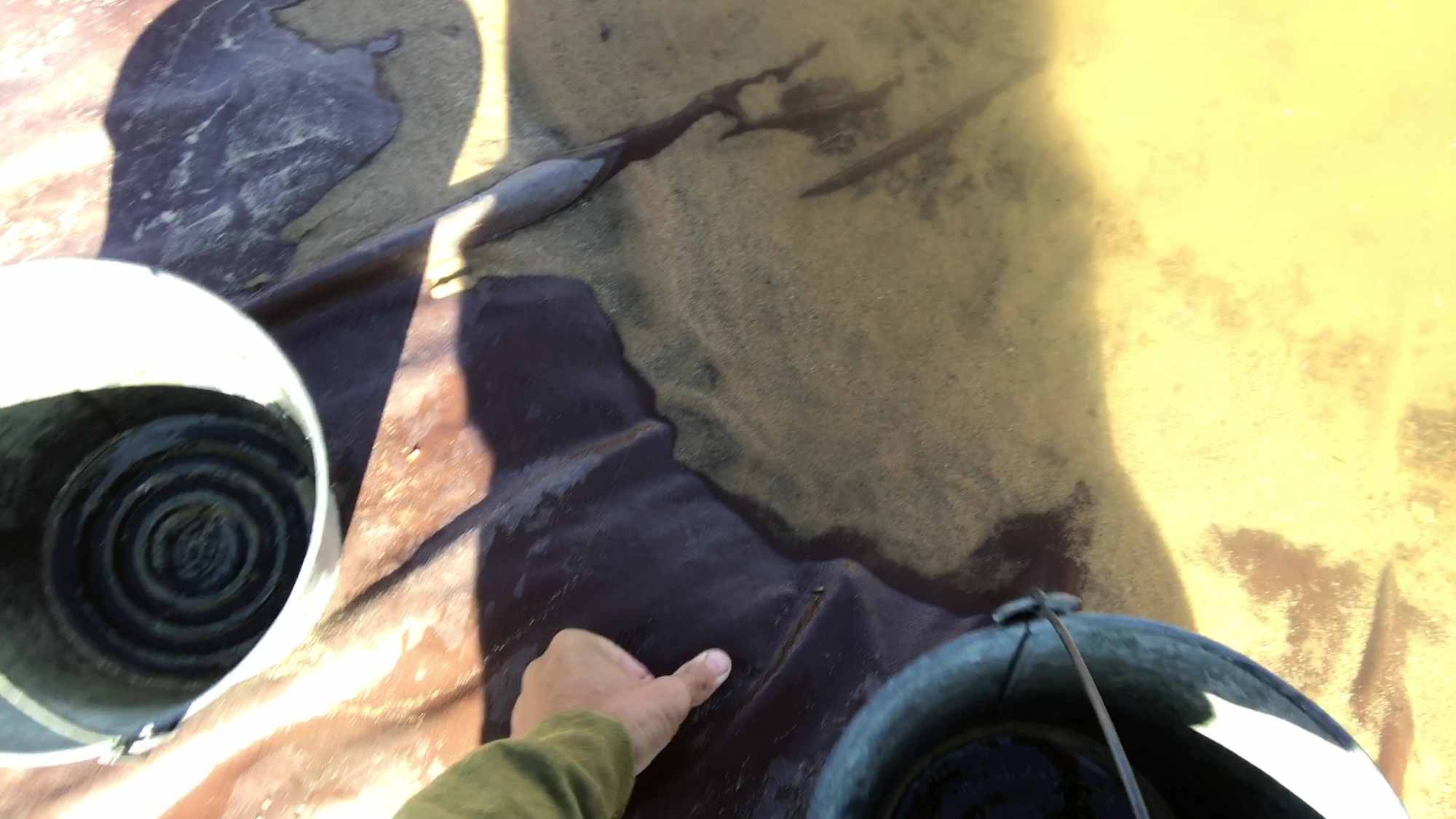
08 Kneeling To Fill Pails From Rain Water Catchment Pond
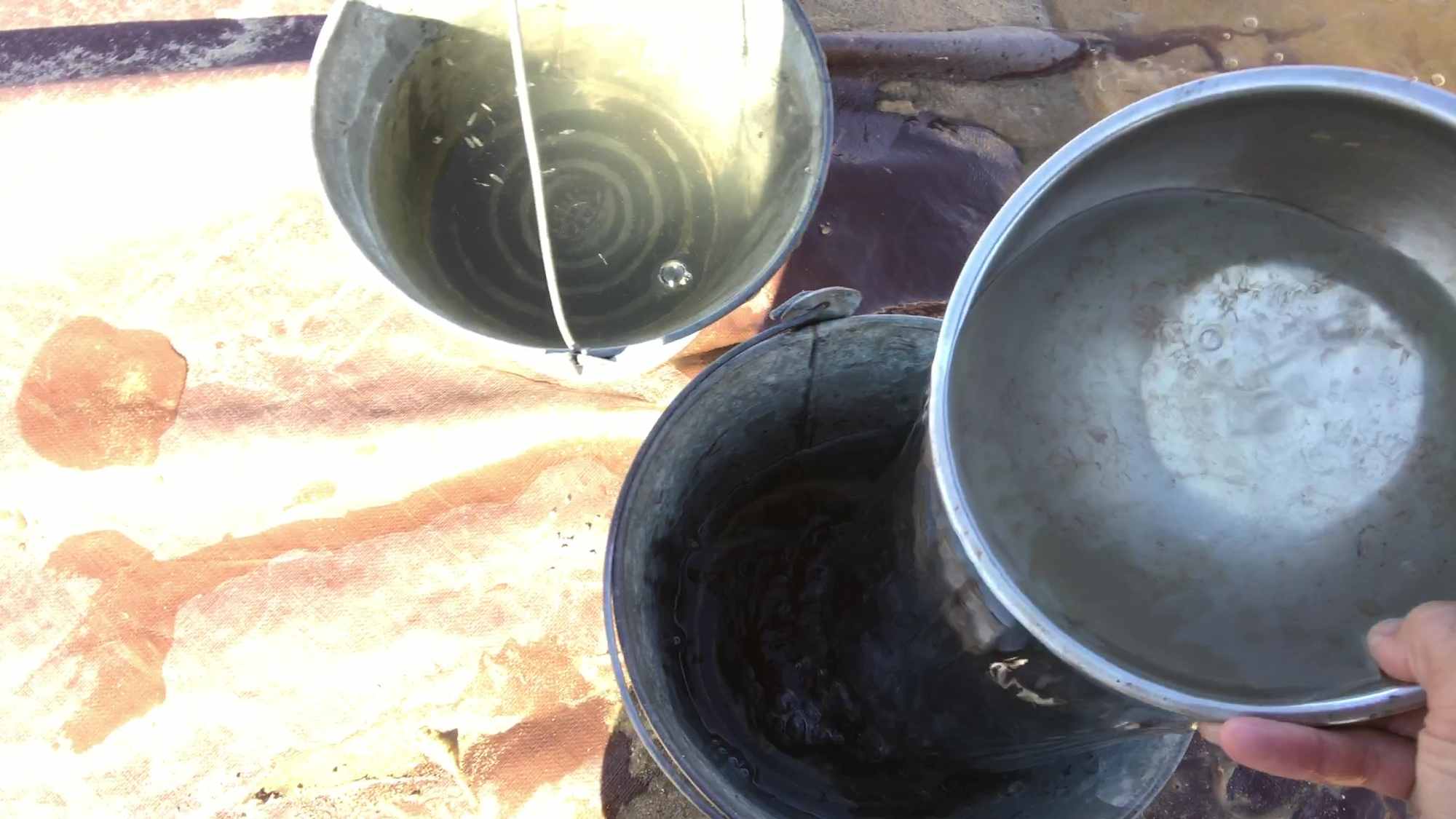
09 Pouring Metal Bowl of Rain Water Into Metal Pails
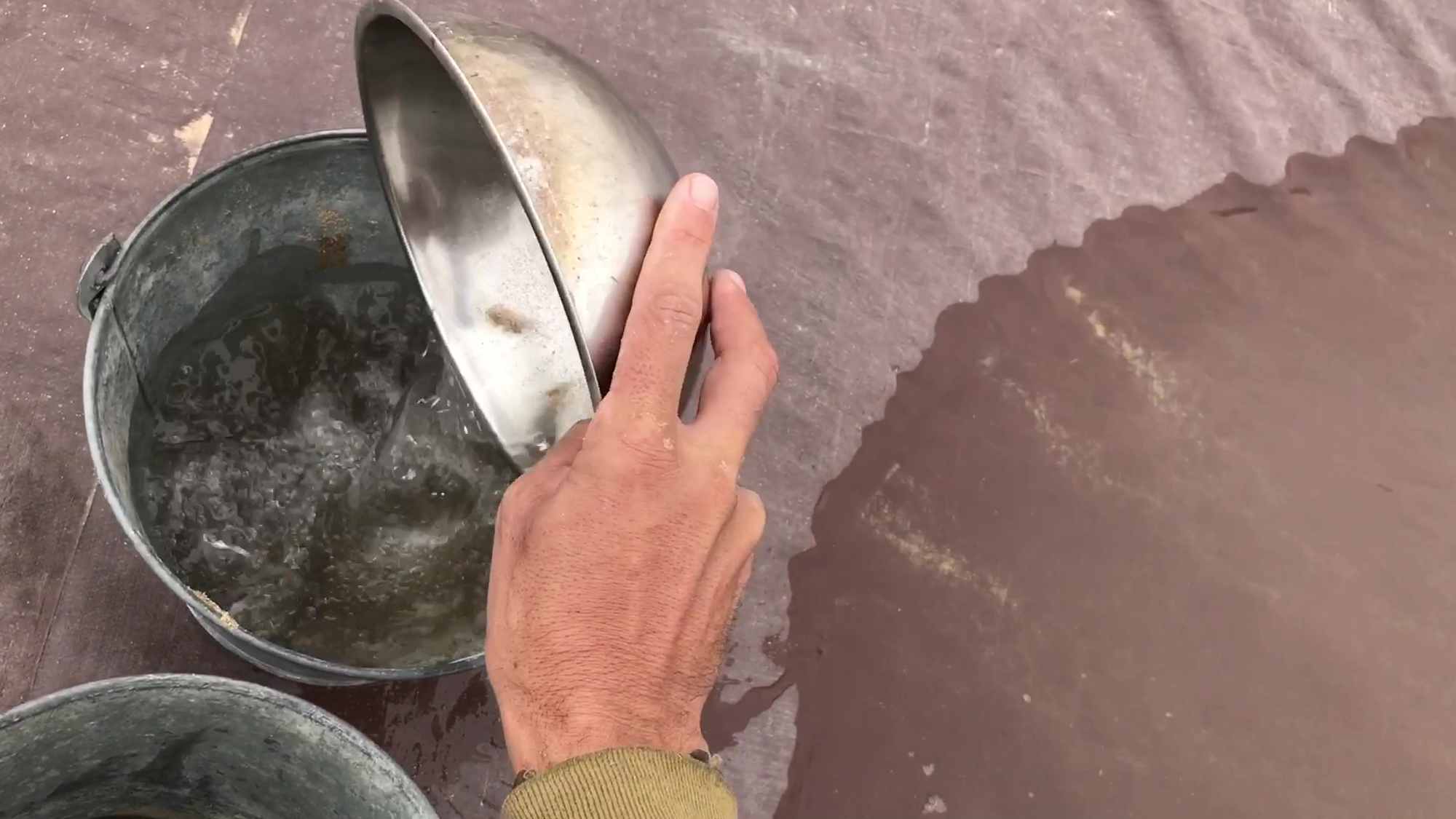
10 Pouring Metal Bowl of Rain Water Into Metal Pails 01
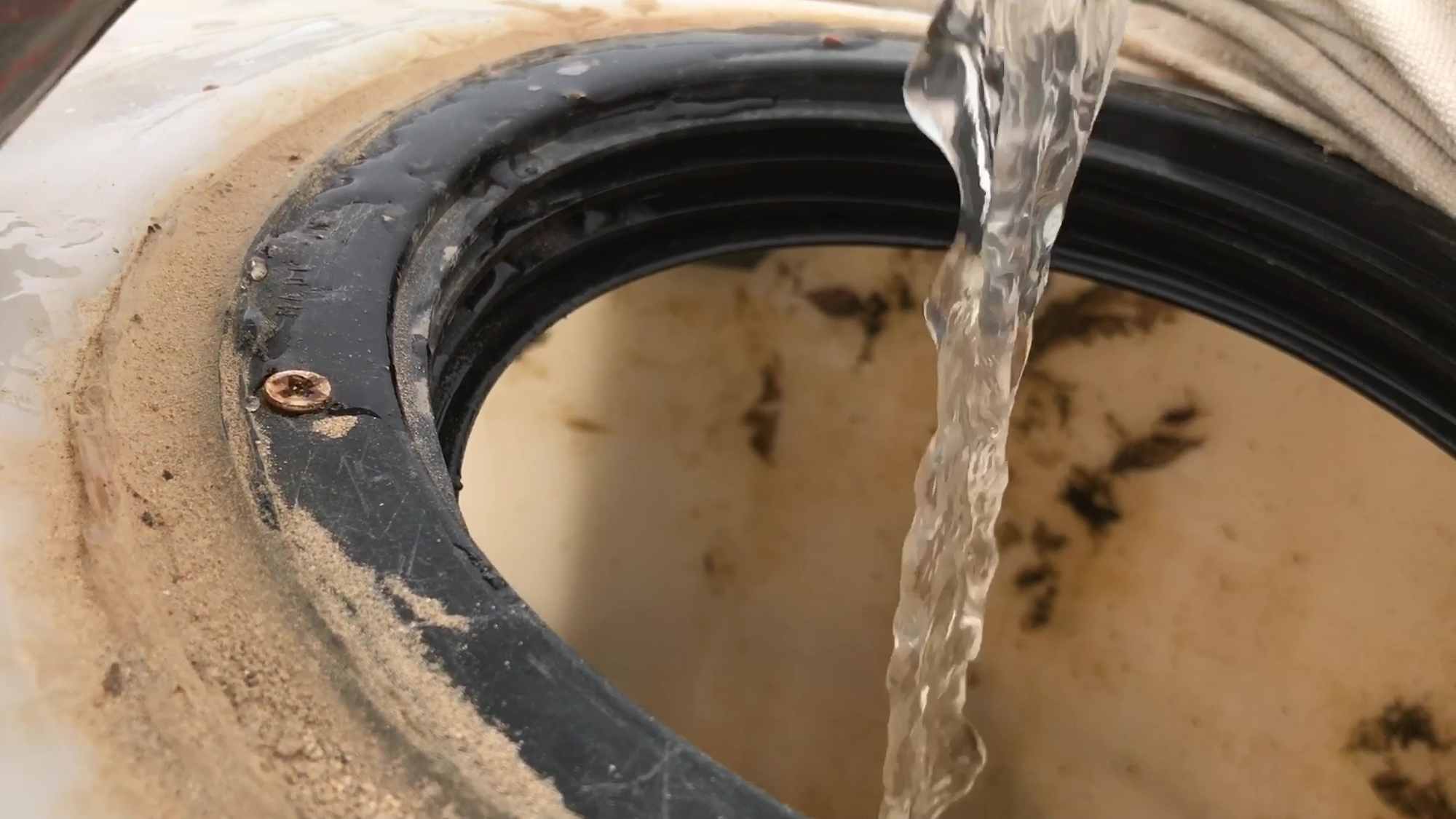
11 Pouring Rain Water Into Irrigation Storage Tank
Tropical Storm Rain Water Catchment By Hand With Two Galvanized Pails
This was the most extreme storm and rain event in the several years that I've been out here. I had to shelter in my truck from the storm after securing everything I needed to outside, most importantly my rain water catchment tarp pond systems. At this time I had two 20x20 foot tarps anchored into pond pits. I had just been waiting for the next rain to get another harvest. This one landed in the heat of the summer and gave me hundreds of gallons overnight. The trouble was, while the moisture left in the sand by the rains create a nice cooling fog the next day, I knew I'd only have a few precious early hours after the scorpions would go back under ground to gather as much water as possible before it started to evaporate out of the ponds. I set my target to get about 200 gallons in a just a few hours. I had already burnt out a bilge pump that I hoped would save me some effort, but it just wasn't the right tool for the job. I had to fall back on my own body and just hustle to get as much water as I could. I had to push myself to repeatedly hit the deck and crouch down to use a metal bowl to fill two approximately two gallon pails that I'd then walk over to a long term storage tank about 100 feet away. It doesn't sound like much of a task, but I was already very debilitated by the heat of the summer so going into beast mode was not only extremely painful and difficult, I'd soon find out it was actually deadly. It turns out as I was pushing myself to make the cycle over and over, the process of crouching to get down to the water pit, then standing up, walking it over to a tall tank and lifting to pour the pails in would result in a life threatening injury called compartment syndrome.
I beast moded it fill the tank, leaving hundreds of gallons still out in the tarps. I wouldn't know until the next day when I almost lost consciousness and had to drop the to ground and barely crawl back to base camp, that I had actually blown out major blood vessels in both legs and was bleeding profusely internally. I couldn't walk, I couldn't stand, I could barely sit up without losing consciousness and rapidly a dark eggplant discoloration began to fill the backs of my legs all the way down to my toes. The blown out blood vessels had filled the muscle compartments in all the quadrants of my legs and the blood and other fluids were pressured. My feet and toes were swollen, half the back skins of my legs almost black with stagnant blood.
Sadly I watched from a safe distance the rest of the water in the tarps evaporate. I was out of commission. For two months I couldn't stand or walk, I didn't know if I'd ever walk again. I didn't know how much damage was done, whether it would be permanent, whether I'd need surgery or what. It was a medical gamble, I chose to avoid bankruptcy and just try to ride it. After much research I felt confident that have survived the first few hours and days meant that it wasn't likely that I'd die from it. But there was not much reassurance that I'd fully recover if at all. I mainly just had to remain still and calm, stay hydrated and try to increase my nutrient intake to not only heal from the injury and process all the dead blood, but also to manufacture new blood after loosing so much. I'd say I've had my fair share of near misses, close calls, and brushes with death, but this was the longest looming dance with the grip reaper of my life. Friends urged me to get professional medical help and to get out of the desert, but I was resolute in my position that I wanted to live with dignity as long as possible in a state of freedom.
There's nothing out there for me any more, not that I burned all of my bridges, I just refuse to be a burden and I"m content to meet my fate on my own land with dignity whenever and however it appears. Because I was reasonably certain that I had to a good chance to recover with professional medical intervention, I choose to ride it out here and not seek a medical evacuation, which quite probably would have left me with so many bills that I'd have to sell my land or have a lien put on it. So in a sense I risked my life to rescue rain water, and I risked my life not to lose the land. I wouldn't advise anyone be so daring, and some might say foolish, but while this is still a free country, I'm free to live and die the American Dream so long as I don't endanger others in the process.
If the health and safety of anyone else is ever my responsibility on this land, then I will go above and beyond and all cost to ensure they get immediate modern professional medical care, but for me, it would be a last resort at this point. Many factors could change that, but for now, it's the way it has to be. To me, survivalism for it's own sake isn't the end all be all, it's living with dignity that matters most.
Unless radical reforms are made to the medical industrial complex, I'll be living by my wits, on my own land, by my own rules of medical engagement, endangering no one else as I face the elements and try to design and establish a sustainable human settlement. Living and learning hour after hour, day after day, week after week, month after month, year after year.